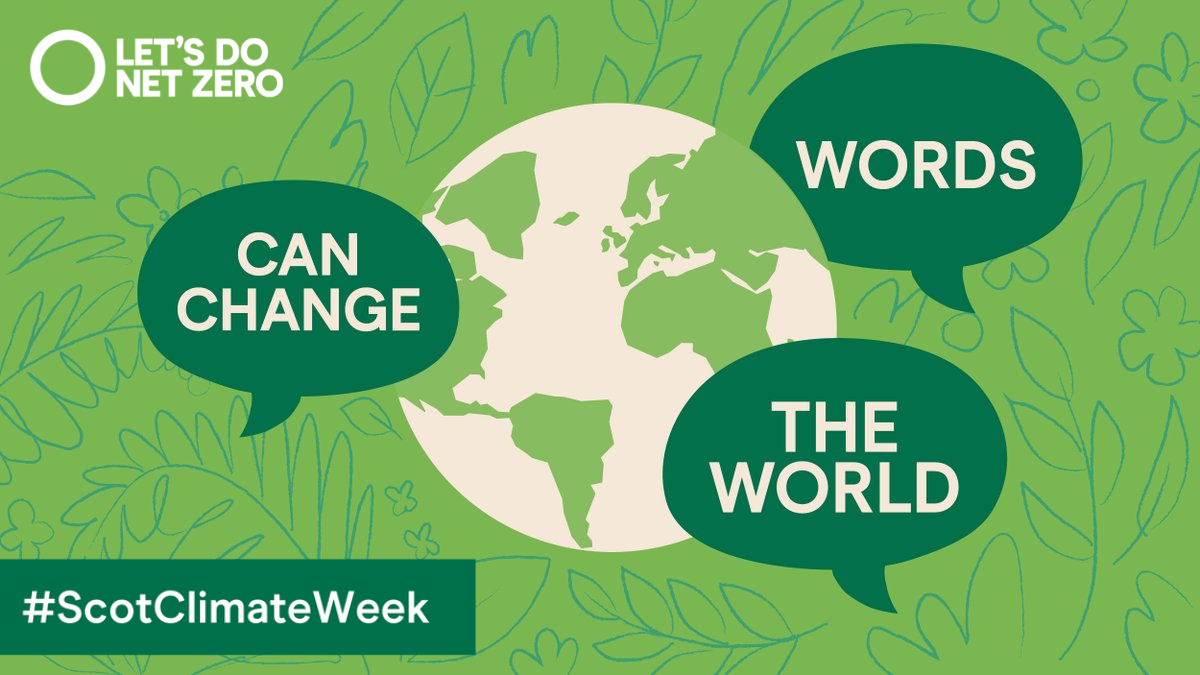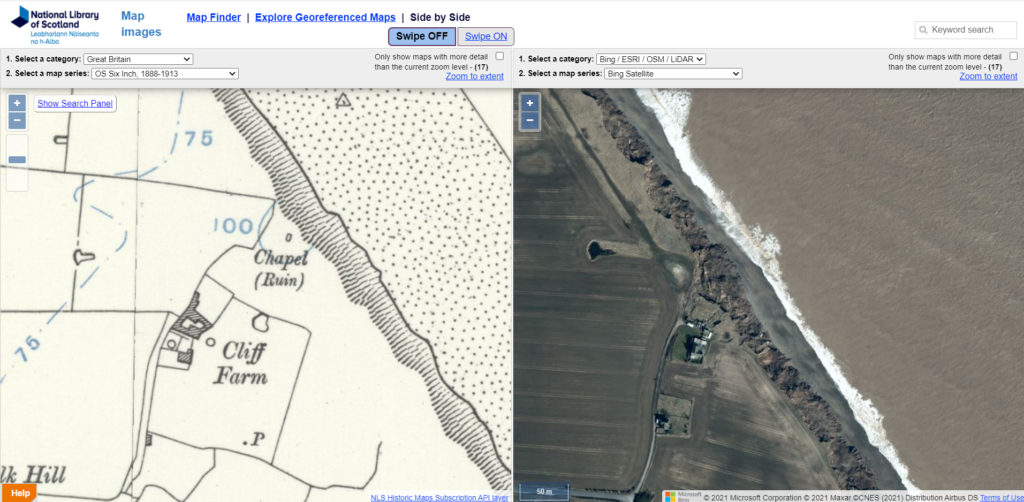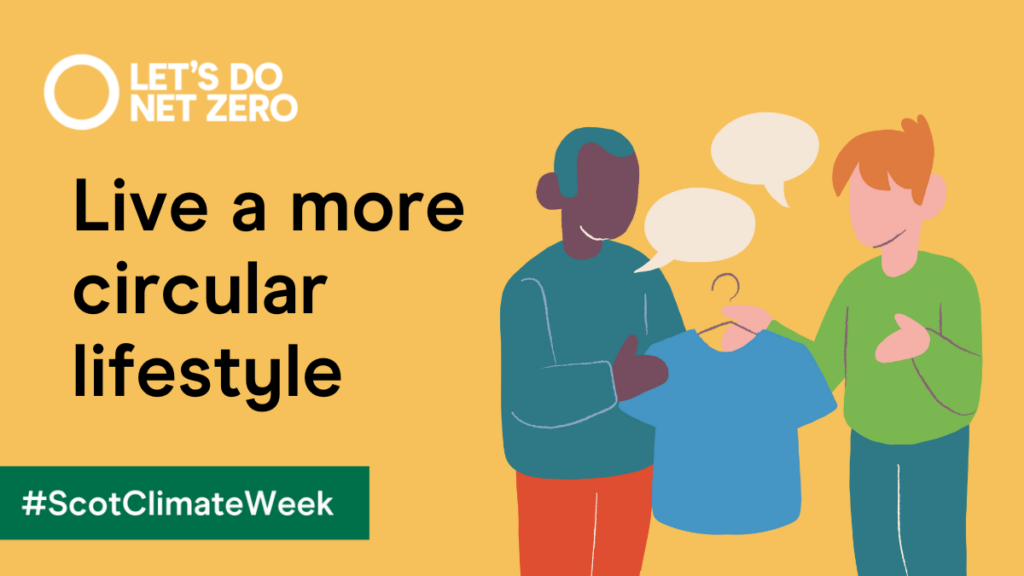#CILIPSGoGreen x Scotland’s Climate Week 2022
Category: Blog, CILIPSGoGreen

Throughout Scotland’s Climate Week 2022, we’ll be sharing ideas and inspiration from our ongoing #CILIPSGoGreen library sustainability campaign, drawing on the wonderful work taking place across Scotland’s libraries to grow environmental understanding and action. Today’s theme is:
Words
As library and information professionals, we know firsthand that words really can change the world, from tackling misinformation about the stark reality of the climate crisis to making space for new voices excluded from traditional environmental discourse. Where better to begin than our library books themselves?
Collection Creation
Eager to grow your reading lists with some sustainable content? Our friends at Scottish Book Trust have compiled several excellent book lists to inspire all ages, including Books for Explaining the Outdoors for ages 0-2, Polar Adventures for ages 6-8, Books for Outdoor Learning ages 6-11, Children’s Books to Save the Planet, Climate Fiction for Future World Changers and Nature Reads for Adults. Wow! The Arkbound Foundation, a charity book publisher that focuses on social and environmental themes, also have a number of thought-provoking titles that address what we can all learn from climate adaptation around the world as well as creative responses to the climate crisis.
For library staff too, Libraries and Gardens: Growing Together by Carrie Scott Banks and Cindy Mediavilla (2019) explores a variety of library-garden case studies to demonstrate how they have the potential to improve community engagement, cohesion and health. You can read an interview with the authors here and don’t miss the accompanying episode of the American Libraries ‘Call Number’ podcast – listen here for free. Ayub Khan and Stella Thebridge’s Better by Design also explores the environmental impact of library building design, construction and use. Remember that CILIP members receive a generous 35% discount on all Facet print titles!
We can also bring that imaginative library magic to bear on not just which books we have but how they reach us, from donation drives to visiting initiatives like The Nature Library pop-up spaces. And once a book has reached the end of its lending lifespan, socially minded organisations like BetterWorld Books – recent signatories to the Green Libraries Manifesto – offer the opportunity to donate and recycle.
Of course, library collections no longer mean exclusively books – there are many creative ways in which you can incorporate sustainability into your catalogue and activities. From international Seed to Table initiatives and Glasgow Seed Library closer to home to benefiting from rooftop beehives and upcoming Lend and Mend Spaces across several Scottish libraries, environmental action in libraries can flourish in lots of different forms. What would work best for your community?
Across CILIPS, many members tell us that the need to keep relying on plastic book covers is an ongoing frustration when it comes to library sustainability efforts. For now, we know that Pelloplast through The Design Concept offers a self-adhesive sustainable option, while Helsinki’s libraries provide international inspiration in having managed to stop their plastic cover use altogether, instead introducing a locally made sugar cane material. Please keep highlighting the demand for greener resources to your suppliers and join The Green Libraries Network (more below) to be part of collective action on this and similar themes.
Words Worldwide and Making Sense of Misinformation
It is also critical to ensure that not just our books but our library teams communicate clearly about environmental issues, and negotiating the complex landscape of sustainability can be challenging. If you’ve ever wondered – literally – what on earth we mean by ‘net zero’, ‘carbon offsetting’, ‘climate justice’ and other buzzwords, you’re not alone! Head to Julie’s Bicycle’s Deciphering Green Gibberish for help in making sense of sustainability. More broadly, we know that libraries are essential to tackling the scourge of mis- and disinformation, especially when it concerns the climate crisis. The National Library of Scotland uses its Map Collections to vividly illustrate the reality of climate change like coastal erosion and all services across Scotland likewise deserve recognition for their vital work in ensuring that their communities can access evidence-based sustainability information.

Here, the NLS Side by Side Viewer reveals coastal erosion at Cliff Farm, near Holmpton in East Yorkshire. Note the Chapel Ruin that has been completely lost to the sea.
#LibrariesAreEssential to coping with climate anxiety
Other terms you might be starting to hear within sustainability discussions are ‘climate anxiety’ and ‘climate grief’, articulating the hopelessness and deep emotional distress we can all feel when we contemplate the extent of environmental degradation. See the work of the Climate Psychology Alliance Scotland for more information about these concepts, which we explored in our 2022 Annual Conference sustainability panel discussion:
and in this inspiring, thought-provoking #CILIPSGoGreen video interview with Heather Macnaughton (Partnership Manager at Historic Environment Scotland) and Bruce Newlands (renowned Inverclyde architect and founding trustee and chairperson of the Inverclyde Shed).
In such circumstances, the safe, trusted and uniquely equitable community space that libraries provide becomes more essential than ever.
by Kirsten MacQuarrie, CILIPS Membership Officer
Stay tuned for more #CILIPSGoGreen x #ScotClimateWeek blog posts coming soon.
Please also consider joining the CILIP Green Libraries Network to be part of a collaborative online platform for Green Champions across LIS where we are creating ideas, supporting each other and shaping the future of the Green Libraries Partnership.
